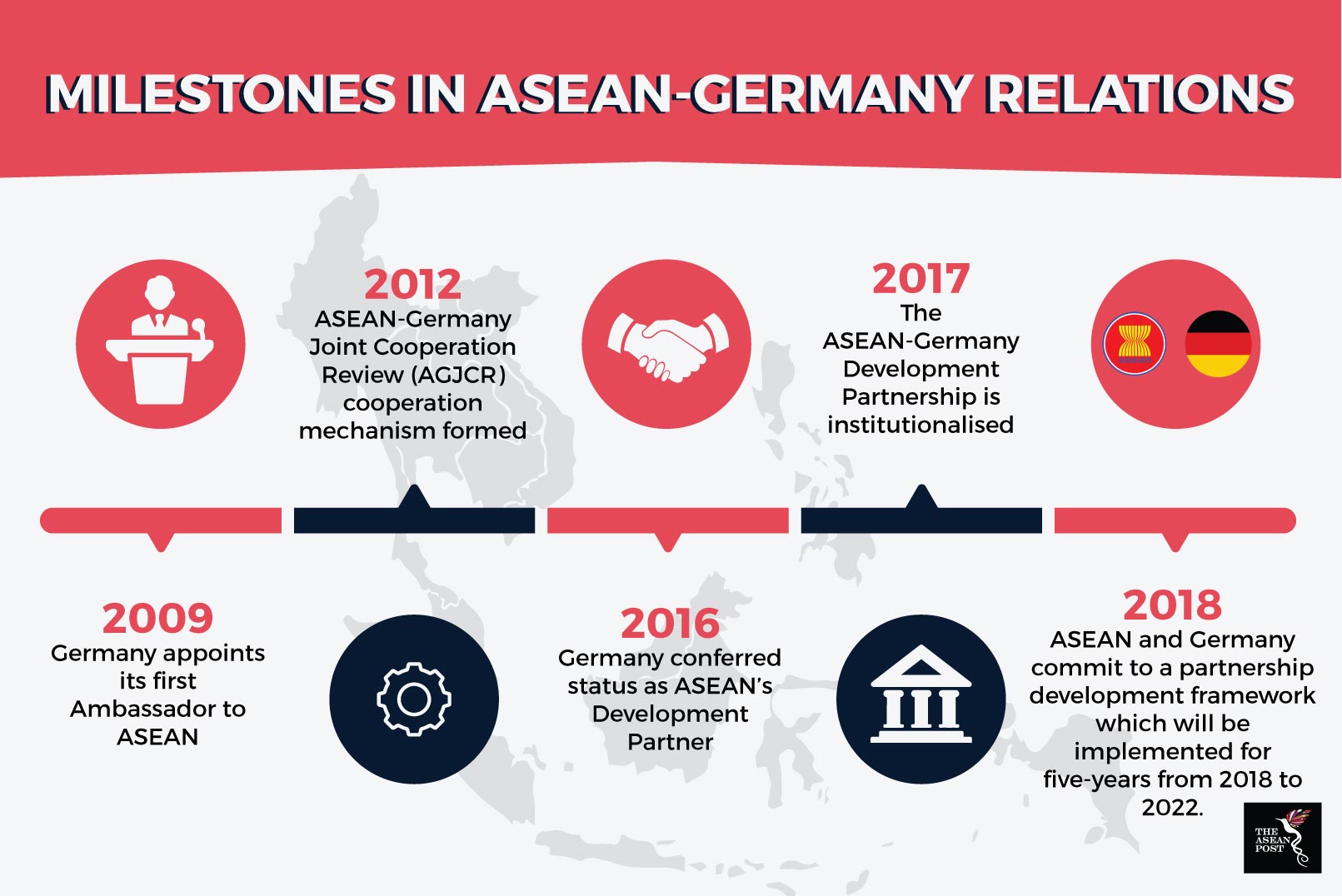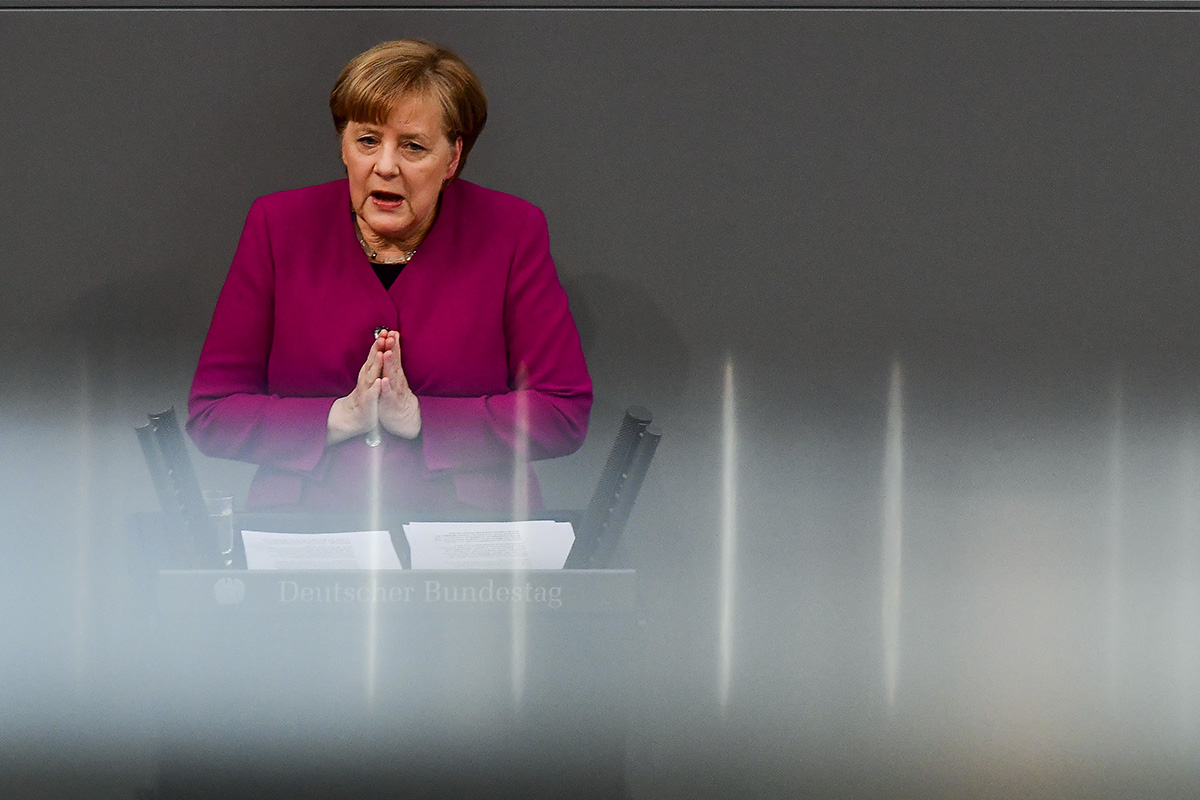The European Union (EU) has been a strong partner of the Association of Southeast Asian Nations (ASEAN) for many years now. Of the 28 members within the EU, Germany has and is still playing a crucial role in this region to region partnership.
ASEAN-Germany ties don’t get much attention but it is important given that many citizens of the 10-member Association of Southeast Asian Nations have grown to rely on German goods, services and investments.
Pursuing greater investments
A quick glance at traffic in the vast financial districts in downtown Singapore, Kuala Lumpur, Bangkok and Jakarta and one cannot but notice a few German automobiles cruising down the road. German exports to this region are not only limited to cars but also engineering technology, energy, chemicals and machinery which play a crucial role in developing this fast-growing region.
Official data sourced from the ASEAN Secretariat reveals that foreign direct investment (FDI) from Germany to ASEAN has seen a drastic six-fold increase from US$67.6 million in 2014 to US$408.8 million in 2015. German companies like BASF, Henkel and Osram Opto Semiconductor either expanded their operations or established new business functions since 2015 to meet growing demand in the region which has led to the creation of new jobs for locals.
Germany is also one of the largest contributors to the efforts to form a cohesive ASEAN Community and has channelled assistance via its state funded programs. These programs which are implemented via the Deutsche Gessellschaft fur Internationale Zusammenarabeit (GIZ), the Physikalisch-Technische Bundesanstalt (PTB) and the Kreditanstalt fur Wiederaufbau (KfW) are aimed at intensifying cooperation in various areas including energy efficiency, forestry, port development and agriculture.
German investment is most noted in energy development. The GIZ has been actively cooperating with the ASEAN Centre for Energy (ACE) to research and draw up recommendations to support ASEAN’s renewable energy goals. Their findings have helped develop sustainable models for rural electrification and energy efficiency projects which not only benefit the masses, but are also bankable, thus providing promising investment opportunities for local and foreign investors.
Improving trade relations
As a country, Germany is still behind the likes of China, Australia and Japan which benefit from free trade agreements signed with ASEAN.
According to statistics from the ASEAN Secretariat, two-way trade between Germany and ASEAN has seen a slight decrease of six percent since 2015. ASEAN’s exports to Germany fell nine percent from US$26.7 billion in 2015 to US$24.4 billion in 2016 and German imports to this region suffered a four percent decline from US$28.7 billion in 2015 to US$27.6 billion in 2016.

However, of the EU28, Germany is still the biggest contributor to ASEAN in terms of trade to and from the ASEAN region.
Talk of an EU-ASEAN free trade agreement (FTA) has been reignited after a hiatus since 2009 and if successful, Germany would be able to harness greater economic potential from this region. The EU initially abandoned negotiations for an interregional FTA after talks began in 2007, preferring instead to conduct bilateral negotiations with individual ASEAN member states. Thus far, the EU has concluded FTAs with Singapore and Vietnam and is in the midst of negotiating FTAs with other ASEAN members like Malaysia, the Philippines, Thailand and Indonesia.
Taking relations one step beyond
Recently, leaders of both sides adopted a framework for future cooperation called the Practical Cooperation Areas (PCA) for ASEAN-Germany Development Partnership which will be implemented for five-years from 2018 to 2022. This document will lay the foundation for the further development of ties between the two, as well as provide a useful starting point to explore new areas of cooperation, in line with the existing three pillars of the ASEAN Community.
The future holds great promise for ASEAN-Germany ties. Since Germany was conferred status as ASEAN’s Development Partner in 2016, there will only be more opportunities for cooperation to come.
With the possibility of an ASEAN-EU FTA in the near future, Germany’s presence and influence on the region’s economy will undoubtedly come to the fore. For businesses which are quick to realise this opportunity, the possibilities could be endless.
